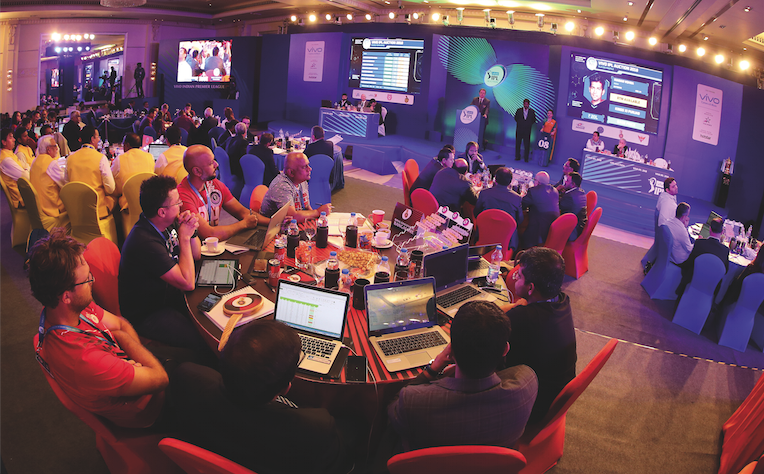Do players care more for their franchise than for their country?
Almost on cue, India ripped through South Africa’s batting lineup, taking nine wickets for 53 runs, to win the third Test inside four days. That allowed both squads to retire to their hotel rooms where they could watch the remainder the Indian Premier League (IPL) auction without the distraction of having to return to to the Wanderers for a fifth day of Test cricket.
It’s that time of year when for seven weeks the cricketing universe focuses on the IPL, now into its 11th season and a tournament which has gone a long way to changing the face of the sport. The brainchild of now embattled Lali Modi, the IPL makes millionaires out of some relatively average players, if truth be told while helping to provide financial security for life for others far more gifted.
Our own AB de Villiers is one who falls into the latter bracket, earning the equivalent of R21-million each year he spends seven weeks with the Royal Challengers Bangalore. He has been richly rewarded for his batting pyrotechnics and electric personality; India loves AB and AB loves India. In total there are 10 South Africans in IPL 2018 and three of them – De Villiers, Faf du Plessis and Quinton de Kock – would have been sweating bullets after picking up injuries against India and being forced to miss a number of games for their country.
South Africa’s representation and earnings are: De Villiers (Royal Challengers Bangalore, R21m), Chris Morris (Delhi Daredevils, R12.5m), Kagiso Rabada (Delhi Daredevils, R7.7m), David Miller (Kings XI Punjab, R5.5m), De Kock (Royal Challengers Bangalore, R5m), Du Plessis (Chennai Super Kings, R2.9m), Imran Tahir (Chennai Super Kings, R1.9m), JP Duminy (Mumbai Indians, R1.85m), Lungi Ngidi (Chennai Super Kings, R925 000) and Cameron Delport (Kolkata Knight Riders, R545 000). Mujeeb Zadran, the 16-year-old Afghan, will make history as the youngest IPL cricketer after being bought for the equivalent of R730 000.
The name of the game is cash and that applies to every T20 league that has cropped up around the world. The IPL remains the ‘big daddy’ and stories still do the rounds of how much money was involved when South Africa stepped in to host the event in 2009 during a period of political instability in India. One businessman even found R450 000 cash in his hotel room safe after Kings XI Punjab’s management had ‘forgotten’ to take it with them when checking out.
Given the money at stake for franchise T20 cricket, I agree with England coach Trevor Bayliss, who recently said: ‘I wouldn’t play T20 Internationals. If you want to play a World Cup every four years, maybe six months before letting international teams play T20. I would just let the franchises play.’
For many players, the lure of easy money in franchise cricket is stronger than playing for one’s country – if not yet in the shortest current version of the game, then certainly in the longest (the five-day Test arena).
Remember back in 2008 when the now-disgraced American billionaire Allen Stanford offered a $20-million (est R230m) one-off cash prize for a T20 match between West Indies and England? Pictures of him bouncing England players’ WAGS on his lap didn’t seem to faze the players at the time, given the money they stood to make. England lost, while West Indian jubilation was short-lived as they didn’t receive all their money after Stanford was convicted of massive fraud and sent behind bars in Florida for a 110-year jail term.
Yes, the IPL is the cash cow of the world of T20, but it’s also a tournament when some individuals will sell their souls to be part of it – and that can include anyone from players to TV commentators to cheerleaders.
Written by Gary Lemke
Read SA Cricket magazine
Photo: Ron Gaun /IPL/SPORTZPICS







